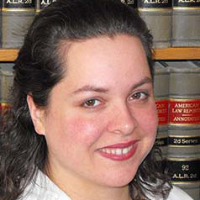Beaver Island DUI-DWI Lawyer, Michigan
Sponsored Law Firm
-
 x
x

Click For More Info:
-
Law Office of Mark S. Guralnick
55 Madison Avenue 4th Floor Morristown, NJ 07960» view mapCriminal Defense Law Dedicated. Fearless. Successful.
Mark S. Guralnick and his legal team have helped clients throughout the USA and across the world by applying unparalleled dedication and hard work to each case.
800-399-8371
Not enough matches for Beaver Island DUI-DWI lawyer.
Below are all Beaver Island Criminal lawyers.
Jodi J. Doak
✓ VERIFIEDEstate, Traffic, Criminal
Mrs. Doak graduated from Thomas Cooley Law School in 2001 as the most decorated student in the school’s history, tying for 5th highest GPA in the sc... (more)
Stephen R. Sawyer
Municipal, Child Custody, DUI-DWI, Administrative Law
Status: In Good Standing Licensed: 50 Years
Daniel S. Gerow
Farms, DUI-DWI, Consumer Bankruptcy, Bankruptcy
Status: In Good Standing Licensed: 40 Years
James N. Erhart
Child Custody, Divorce & Family Law, Criminal, Accident & Injury
Status: In Good Standing
Thomas Cleo Moglovkin
Intellectual Property, Industry Specialties, Environmental Law, Criminal
Status: Inactive Licensed: 33 Years
 Mark Guralnick Morristown, NJ
Mark Guralnick Morristown, NJ AboutLaw Office of Mark S. Guralnick
AboutLaw Office of Mark S. Guralnick Practice AreasExpertise
Practice AreasExpertise

